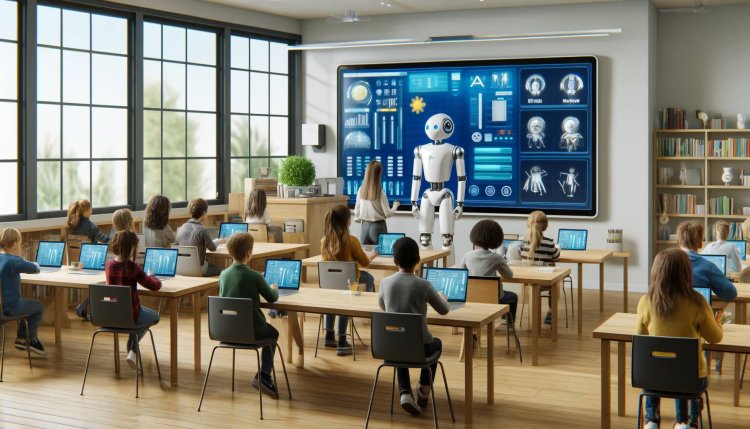Rise of the Machine Tutors and AI's Growing Role in Personalized Education
This article explores the transformative role of artificial intelligence in education through adaptive learning technologies. We delve into how AI is reshaping learning experiences, the benefits for students and educators, the challenges posed by this technology, and what the future may hold.

The landscape of education is undergoing a seismic shift, driven by the incorporation of artificial intelligence (AI) into teaching and learning processes. Known as "machine tutors," these AI systems are designed to provide personalized education, adapting to the unique needs of each student. This development promises to revolutionize educational methodologies by offering tailored learning experiences that were once the domain of one-on-one tutoring.
What Are Machine Tutors?
Machine tutors refer to AI-driven systems that facilitate and enhance learning by adapting educational content to fit the individual learning styles and pace of students. These systems utilize data-driven approaches to assess student performance continuously, allowing for the dynamic customization of lesson plans, exercises, and feedback.
Technological Foundations
1. Data Analytics: Machine tutors collect and analyze data on student interactions, providing insights into student comprehension and engagement levels.
2. Natural Language Processing (NLP): This allows AI tutors to understand and process human language, enabling them to assist with language-based subjects and interpret student queries and responses.
3. Predictive Algorithms: These are used to forecast student performance and potential learning obstacles, enabling proactive adjustments to the curriculum.
Applications and Benefits
The integration of AI tutors in educational settings spans several applications, each offering significant benefits:
- Individualized Learning Paths: AI can tailor educational content to match the learning speed and style of each student, potentially increasing engagement and understanding.
- Immediate Feedback and Assistance: Students receive instant feedback on assignments and quizzes, along with personalized help and explanations, fostering a more effective learning process.
- Accessibility: Machine tutors can provide high-quality, personalized education to students in remote or underserved areas where access to qualified human tutors is limited.
- Scalability: Unlike human tutors, AI systems can simultaneously support a large number of students, making education more scalable and less resource-intensive.
Ethical and Practical Challenges
Despite the promising advantages, the rise of machine tutors also presents several challenges:
1. Data Privacy: The collection and analysis of detailed student data raise significant privacy concerns that must be addressed through strict data management and protection protocols.
2. Dependence on Technology: Over-reliance on AI for education might reduce human interaction and could impact the development of social skills among students.
3. Bias and Inequality: If not carefully managed, AI systems might replicate or amplify existing biases in educational materials or assessments, potentially exacerbating educational inequalities.
Societal Impacts
The broad adoption of AI tutors is likely to have significant societal implications:
- Educational Equity: Properly implemented, machine tutors could help bridge educational gaps by providing high-quality personalized learning experiences to all students, regardless of geographic location or socio-economic background.
- Workforce Development: By efficiently addressing skill gaps and adapting to individual learning needs, AI tutors can better prepare students for the evolving demands of the workforce.
- Teacher Roles: AI tutors could redefine the role of teachers, shifting their focus from delivering content to facilitating and mentoring students in more complex, creative endeavors.
Future Prospects
As technology advances, the role of machine tutors is expected to expand further, potentially integrating virtual reality (VR) and augmented reality (AR) to create immersive, interactive learning environments. The ongoing development of more sophisticated AI models will also enhance the capability of these systems to provide even more nuanced and effective educational experiences.
The rise of machine tutors in education marks a pivotal evolution in how knowledge is imparted and acquired. While these systems offer the promise of democratized, personalized learning, they also require careful consideration of ethical, privacy, and social implications. As we navigate this new era, the collaboration between educators, technologists, and policymakers will be crucial in leveraging the benefits of AI tutors while mitigating their risks.
What's Your Reaction?




















